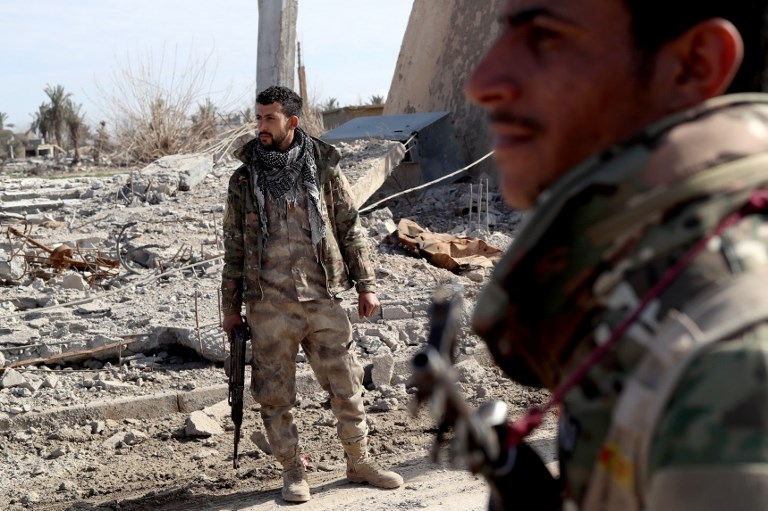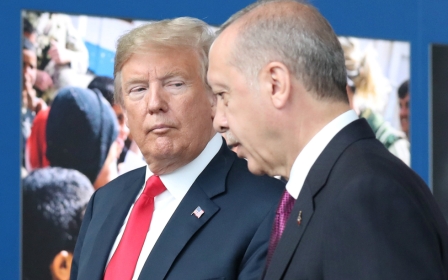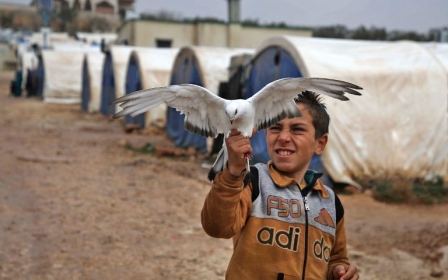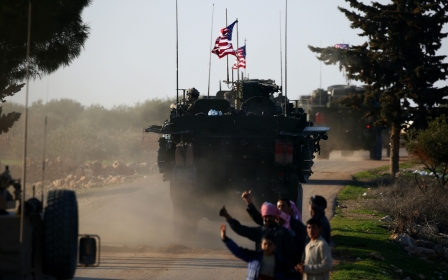US calls for allies to repatriate citizens captured by Kurdish forces in Syria

The US State Department has called for "other nations" to repatriate and prosecute hundreds of foreign fighters captured by Washington's Kurdish allies in Syria, as the United States moves forward with plans to withdraw from the country.
In a statement on Monday, department spokesman Robert Palladino called on countries "to repatriate and prosecute their citizens" who are detained by the Syrian Democratic Forces (SDF), an alliance of militias dominated by the Kurdish Peoples' Protection Units (YPG).
Palladino did not say how many fighters were detained by SDF, but US officials believe they number about 850. Washington has long said it wants to see the fighters returned to their countries of origin for prosecution.
"The SDF has demonstrated a clear commitment to detain these individuals securely and humanely," Palladino said in the statement, before making the call for repatriation and prosecution.
He also said Washington "commends the continued efforts of the SDF to return these foreign terrorist fighters to their countries of origin".
New MEE newsletter: Jerusalem Dispatch
Sign up to get the latest insights and analysis on Israel-Palestine, alongside Turkey Unpacked and other MEE newsletters
Last week, the French foreign ministry announced that French fighters detained in Syria by Kurdish-led forces could be allowed to return home, after earlier insisting that the prisoners should be prosecuted locally.
"Given the development of the military situation in northeast Syria, the American decisions, and to ensure the security of the French, we are examining all options to avoid the escape and scattering of these potentially dangerous individuals," the ministry said in a statement.
"If the forces who are guarding the French fighters took the decision to expel them to France they would be immediately placed in the hands of the law," it added.
A number of countries have expressed concern about the extradition of foreign fighters from Syria, over fears they could pose a security risk.
But the SDF is worried that, without US troops as a buffer, they will be crushed by neighbouring Turkey, making it difficult to guarantee the security of its prisoners.
Questions around US withdrawal
US President Donald Trump announced in December that he planned to pull about 2,000 American troops out of Syria, claiming that the Islamic State (IS) group had been defeated in the war-torn country.
The move drew criticism from some of Washington's closest allies abroad, as well as from politicians in the US, who said the president was abandoning the Kurds.
The Kurds have been credited with leading the fight against IS in Syria.
Last month, following Trump's withdrawal announcement, the Syrian Observatory for Human Rights, a UK-based monitoring group, reported that discussions had taken place within the SDF for the release of as many as 3,200 imprisoned IS fighters.
Although the SDF initially denied any such discussions were ongoing, a Western official, speaking to the New York Times, confirmed that they were.
"The best result of terrible options is probably for the Syrian regime to take custody of these people," the official told the newspaper. "If they are released, it’s a real disaster and major threat to Europe."
Meanwhile, the US state department is organising a conference later this week in Washington, DC, to discuss the way forward in the fight against IS in Syria.
Amid the ongoing withdrawal of American troops, US officials say the Trump administration is looking to increase global cooperation to prevent the resurgence of IS militants.
Middle East Eye delivers independent and unrivalled coverage and analysis of the Middle East, North Africa and beyond. To learn more about republishing this content and the associated fees, please fill out this form. More about MEE can be found here.




